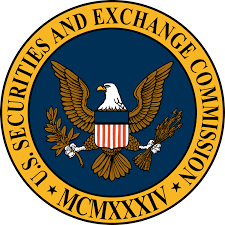
Assess Where You Are and Be Prepared to Act
Since the SEC issued its proposed rule to enhance and standardize climate-related disclosure for investors, it received nearly 15,000 public comments and has been met with a slew of highly politicized criticism and backlash. This has only heated up following the Silicon Valley Bank collapse, where ESG critics suggested that the company’s over-emphasis on ESG was one reason for their demise.
Despite the negative skew in the headlines, influencers like BlackRock continue to ask companies they invest in to disclose their climate impact and transition economy strategies. (Learn more about Larry Fink’s approach and BlackRock’s engagement priorities.) And, soon enough we should have more clarity as the SEC is expected to rule on its ESG proposal in the coming months.
Reading the SEC and ESG “Tea Leaves” is never easy, but one thing is certain: Regardless of where the final ruling lands, the proposal signals the SEC’s increasing scrutiny around ESG disclosure, and public companies need to be ready to disclose their climate strategies and impact.
So, as we patiently await the final ruling, here are four questions to ask yourself, your executive team, and your board to assess where you are and how you can be ready to act:

1. Do you have the foundational building blocks in place to build a scalable sustainability program?
Before you jump into the climate task at hand, it is important to get the ball rolling with the basics of best-in-class environmental, social and governance programs. That means having a scalable sustainability foundation in place to build upon. Do you have a cross functional sustainability team established? Is environmental, social and governance risk oversight assigned to the board of directors? Have you benchmarked your sustainability practices against peers’ disclosures? For detailed briefers on potential approaches, be sure to check out our articles, Getting Your ESG Journey Off On The Right Foot, and How Small Caps Can Kick-Start Their ESG Journeys.
2. Do you have a defined climate strategy that considers materiality and risk mitigation?
Even while we wait to see where the SEC details shake out, it is fair to expect that your company will need to articulate your climate risks and transition plans. As with any other business risk, the first step is understanding the scale and scope of climate risks and developing scenarios to evaluate the potential impact on your business. Are climate risks material to your business and operations? Where do you have exposure? What is your climate transition plan? How do you quantify the potential impact? And, most importantly, what is your strategy to mitigate these risks and maximize the opportunity?
3. Are you familiar with the TCFD framework for climate-related financial disclosures?
The SEC’s proposal is expected to build on the Task Force on Climate-Related Financial Disclosures (TCFD). This makes it well worth your time to get familiar with the metrics, targets, and transition plan recommendations within the TCFD framework. TCFD provides a set of comprehensive introductory materials here.
4. Do you have the systems and resources in place to evaluate, measure, track, and report investor-grade climate data?
Getting the right systems and processes in place to collect, assess, and report audit-ready climate data takes time. If you haven’t begun to take inventory of your existing systems and external needs, there is no time like the present to start to assess: What resources are needed to collect, track, and validate data? What third-party data aggregator partners can help implement data collection systems? Are you ready to ensure climate data is audit ready, within scope of ICFR (internal controls over financial reporting) and in-line with XBRLTM tagging requirements?
Our bottom-line advice to clients – it’s time to prepare. The request for climate disclosure is not going away. It will take time and resources to evaluate climate risks, shape your climate strategy, collect and validate data, and operationalize investor-grade reporting. Despite the uncertainty around the details of the final SEC ruling, by starting to ask these important questions today, you will build momentum and be prepared to take informed actions once the ruling is finalized.
At Sharon Merrill, we help companies to advance their sustainability journeys and amplify their impact to enhance long-term value, reduce risk, and drive societal progress. Contact us to talk about how we can help your company begin making sustainability progress.

